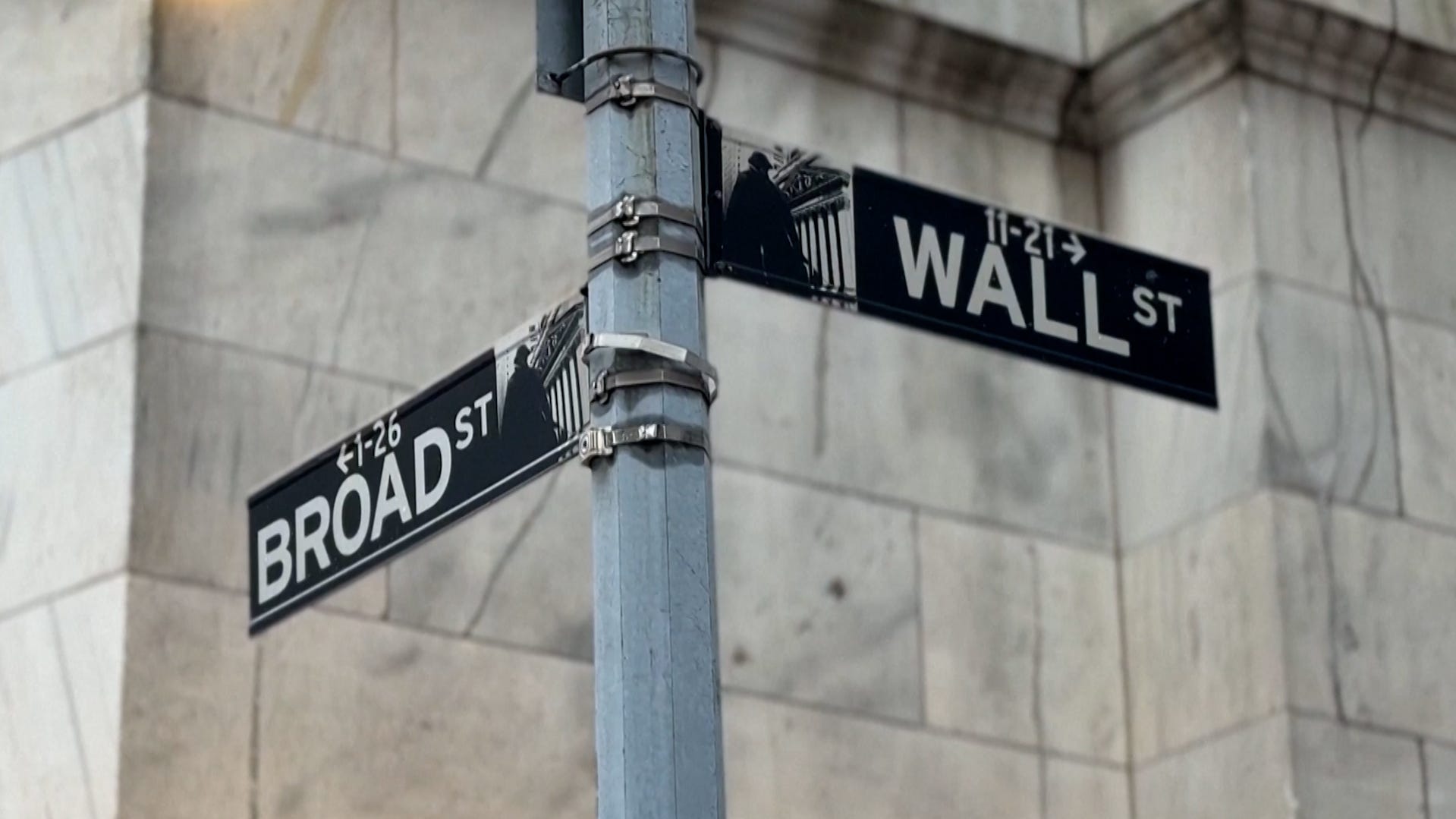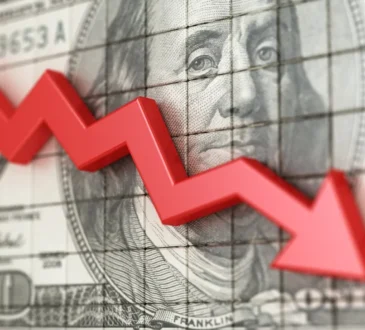
People on Wall Street react to sinking stocks from tariffs
People on Wall Street reacted to the stock market downturn from Trump’s tariffs announcement with a mix of worry and optimism.
Stock markets in the U.S. and around the globe have dropped since President Donald Trump introduced tariffs on most imports, causing Americans to rethink their financial investments.
After the opening bell on Wall Street on April 3, the Dow fell sharply in early trading and did not rebound later in the day, mirroring global markets and adding to the jitters for many Americans.
The stock market downturn has heightened fear among investors, especially as most Americans are struggling financially. They expect these taxes will slow consumption and economic growth, possibly leading to a recession.
How could it affect your 401(k) accounts? Here’s what you need to know about how to recession-proof your retirement fund and whether you need to tinker with your accounts.
Is my 401(k) safe?
The recent turmoil likely has spiked anxiety levels for many people with money tied up in workplace 401(k) plans or other retirement accounts. These are long-term accounts, for which short-term gyrations shouldn’t matter much.
Should you tinker with your holdings right now? Possibly but probably not. For starters, you don’t want to withdraw money from your account, as that would lock in any losses and possibly subject you to taxes. But you might want to adjust your investment mix if you feel the volatility is too much to handle.
How to protect 401(k) during stock market downturn
While you don’t want to withdraw money from your account, you might want to adjust your investment mix if you feel the volatility is too much to handle.
Simply blending bonds with your stocks can provide a lot of downside cushion, without giving up all that much upside potential. A portfolio of 60% stocks/stock funds and 40% bonds/bond funds would have produced a highly respectable average annual return of 9.4% since 1950, according to J.P. Morgan Asset Management.
There are other financial steps you can take to protect your money during times of uncertainty or potential recession:
- Keep debts under control: There are a couple of approaches to paying down debt. One stresses paying off small balances first to build momentum — a feeling that you’re making progress. Another focuses on first whittling away at those obligations carrying the highest interest rates.
- Review your tolerance for losses: You can rebalance or shift some money from relatively stable holdings to those that got beaten down. The idea here is to make gradual adjustments. Your portfolio should reflect your ability to tolerate or handle risk, but you want to avoid making drastic changes at what could be near cyclical low points.
- Build up your liquidity: It’s critical to have enough money in savings to meet unexpected expenses. The usual advice of having three to six months of emergency savings on hand rises to six to nine months for recessionary periods.
- Re-evaluate your job prospects: During economic downturns, unemployment typically rises. Along with possibly searching for a new job, it might be time to update your resume and improve employment skills. It also could help to add a second or gig job. In addition to extra income, a side job can open up tax-saving opportunities such as deductions for business meals, transportation, a computer, supplies or a home office, Valentino said.
- Delay retirement if you can: If you’re nearing retirement age, it might pay to hold out for another year or two. Granted, it seems like everyone else is quitting or retiring, but staying employed a while longer can help take some strain off your retirement portfolio, especially during a recession.
What is happening with the stock market?
After the U.S. stock market closed on April 2, Trump announced a series of tariff increases beyond the new 10% tariff that applies to virtually all imports.
Higher tariffs were announced on imports coming from China, Japan, South Korea, Taiwan and European Union countries including Germany and France, among other nations. Some of the larger rates were imposed on countries running outsized trade surpluses with the United States.
Trump already had announced higher tariffs on Canada and Mexico, two of the nation’s (and Arizona’s) top trading partners. “After much anticipation, the tariff band-aid was finally ripped off yesterday,” said Adam Turnquist, chief technical strategist at LPL Financial. As things now stand, he said, the weighted average U.S. tariff rate could rise from 2.3% in 2024 to nearly 20%.
Investors fear the move will raise consumer prices at a time when many Americans already are struggling financially. In addition, they expect these taxes will slow consumption and economic growth, possibly leading to a recession.




